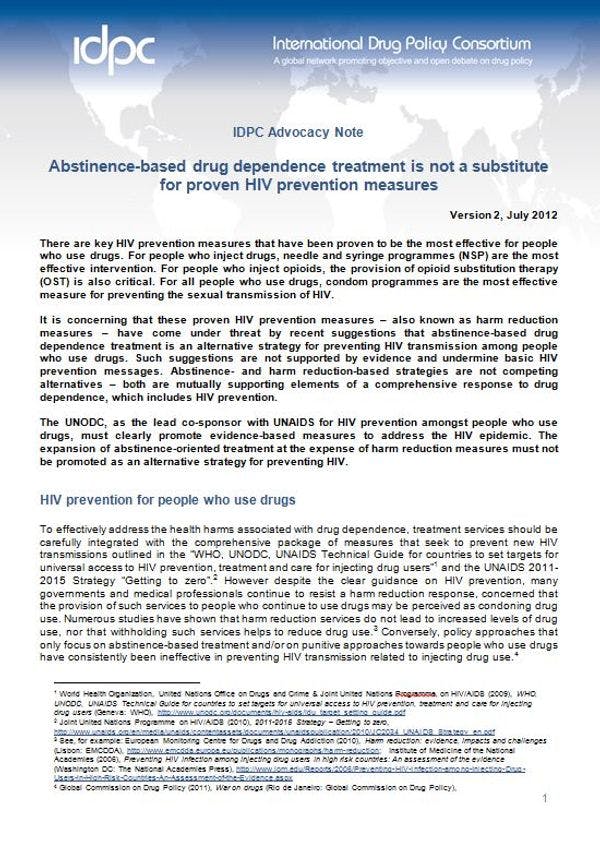IDPC Advocacy Note - Abstinence-based drug dependence treatment is not a substitute for proven HIV prevention measures
There are key HIV prevention measures that have been proven to be the most effective for people who use drugs. For people who inject drugs, needle and syringe programmes (NSP) are the most effective intervention. For people who inject opioids, the provision of opioid substitution therapy (OST) is also critical. For all people who use drugs, condom programmes are the most effective measure for preventing the sexual transmission of HIV.
It is concerning that these proven HIV prevention measures – also known as harm reduction measures – have come under threat by recent suggestions that abstinence-based drug dependence treatment is an alternative strategy for preventing HIV transmission among people who use drugs. Such suggestions are not supported by evidence and undermine basic HIV prevention messages. Abstinence- and harm reduction-based strategies are not competing alternatives – both are mutually supporting elements of a comprehensive response to drug dependence, which includes HIV prevention.
The UNODC, as the lead co-sponsor with UNAIDS for HIV prevention amongst people who use drugs, must clearly promote evidence-based measures to address the HIV epidemic. The expansion of abstinence-oriented treatment at the expense of harm reduction measures must not be promoted as an alternative strategy for preventing HIV.
Keep up-to-date with drug policy developments by subscribing to the IDPC Monthly Alert.
Regions
Related Profiles
- International Drug Policy Consortium (IDPC)
